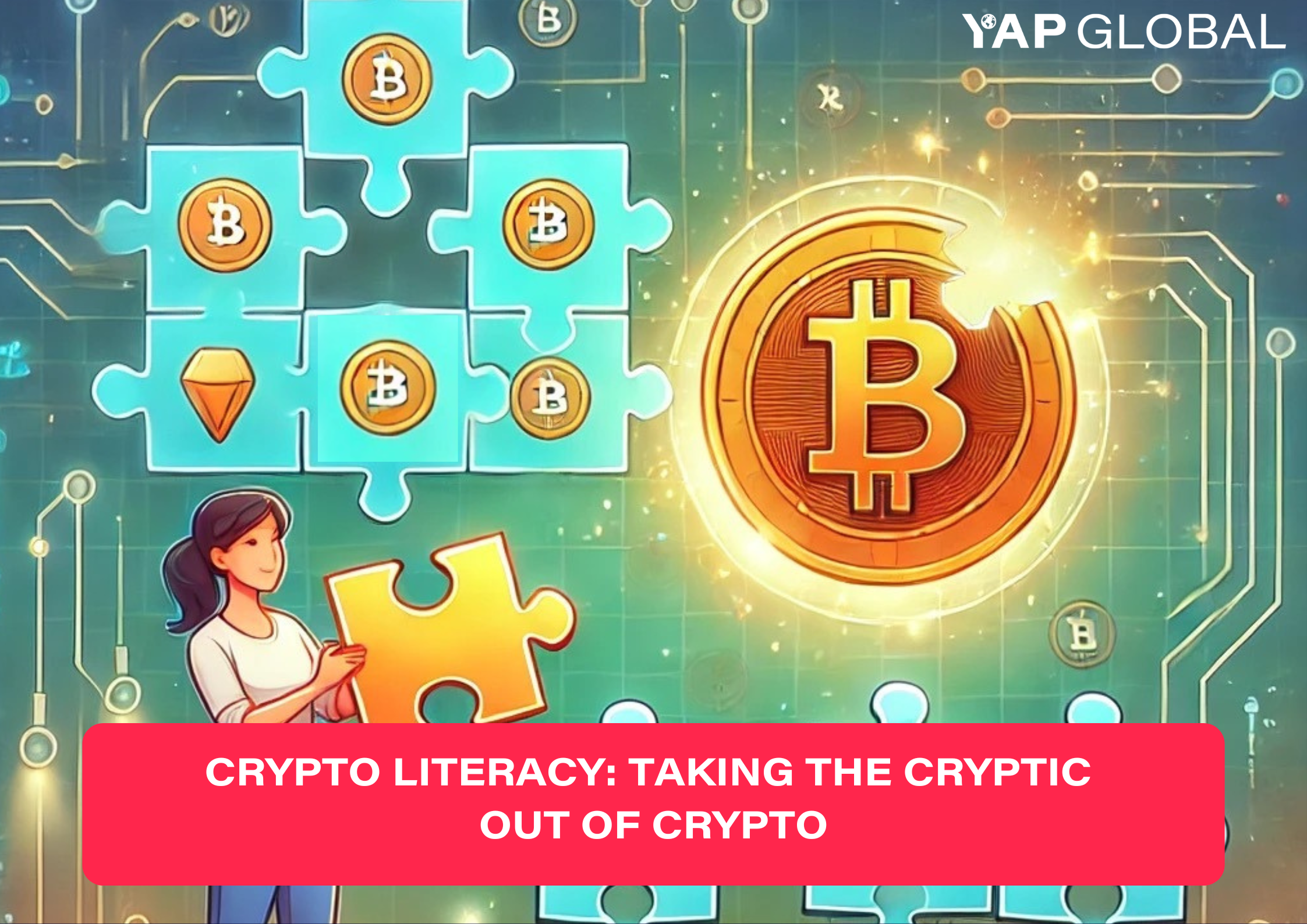Cryptocurrency awareness and ownership have soared over the last three years, rising over 10% in 2023 to today’s figure of 40%. This increase indicates a shift towards cryptocurrency adoption and an increased need for education and crypto literacy. There has also been a rise in institutional adoption, with 70% of institutional investors looking to increase their digital asset portfolios. With this increase in interest and adoption, the need for crypto education is necessary to avoid getting left behind in this rapidly developing space.

What is crypto literacy?
Crypto literacy is the fundamental understanding of cryptocurrencies and blockchain technology, including the types of digital assets and their functionality. Cryptocurrencies are becoming more prevalent in today’s digital economy, and it is essential for people to educate and empower themselves to make more informed financial decisions that benefit them.
We will explore the concept of crypto literacy, define key terms essential to understanding cryptocurrencies, and discuss the challenges newcomers face in grasping this complex field. We will also outline effective strategies for improving crypto literacy, empowering readers to navigate the digital economy confidently and dispel the myths that often surround cryptocurrency.
Key Concepts Everyone Should Know
- Blockchain is a system that records transactions and is maintained across computers linked in a peer-to-peer network.
- Cryptocurrency is a form of digital or virtual currency secured by cryptography. It exists as digital tokens or coins that represent value, recorded on digital ledgers on blockchains. Unlike traditional currencies, cryptocurrencies are typically not issued or backed by any government or central authority.
- Crypto Wallet is a digital wallet that stores, manages, and exchanges your cryptocurrency.
- Decentralization refers to systems where controls and decision-making are distributed among multiple participants rather than concentrated in a single authority. This means users have complete control over their assets and data.
- Decentralized Finance (DeFi) is a term used to describe peer-to-peer financial services on a public blockchain without any third-party intermediaries such as banks
- Cryptocurrency Exchanges are similar to stock exchanges, except they exclusively offer trading a wide range of digital assets from Bitcoin (BTC) to a project’s token.
- Zero Knowledge Proof is a cryptographic method where one party (the prover) can convince another party (the verifier) that a statement is true without revealing any information other than that the specific statement is true.
- Smart Contracts are digital contracts stored on the blockchain and are self-executing when certain predetermined conditions are met.
- NFTs are unique cryptographic digital tokens often used as digital identifiers recorded on the blockchain. They are often used to certify ownership and authenticity for digital art, but their use cases are increasingly being diversified. NFTs can be traded, and ownership can easily be transferred. It is not possible to divide or replicate these tokens.
- Real World Assets (RWAs) are crypto tokens representing ownership or rights to tangible and traditional assets on the blockchain, such as real estate, stocks and art.
- Crypto exchange-traded funds (ETFs) trade on traditional stock exchanges and track crypto-related assets. These funds may hold crypto (known as: spot ETFs) or crypto-related assets such as futures contracts and project tokens. This allows investors to gain crypto exposure through a regulated financial market.
Check out Coin Market Cap (CMC) for crypto definitions that are predominantly written by founders and thought leaders in the space.
Strategies for Improving Crypto Literacy
Find reputable online courses, books, and educational group chats on Telegram that provide comprehensive explanations, insightful discussions, and reliable sources of information.
Attend webinars, local meetups, and conferences to connect with thought leaders in crypto, which can often be the best way of learning.
Subscribe to weekly newsletters to keep up to date with the industry and narratives that you’re interested in, such as The Context, ZK Newsletter, and Unqualified Opinions Newsletter.
You can also find free trial demo accounts that allow you to understand the practical elements of trading cryptocurrencies. As with any investment, be sure to assess your risk and know your financial limits before investing real money.
Like anything new, it can be quite intimidating, and crypto is no different. You may encounter a few challenges, such as technical language, jargon, and concepts that can be daunting for newcomers. With the right mindset and resources, these challenges can become stepping stones to crypto literacy. It’s time to get involved in the future economy 😉
Stay connected with YAP Global:
Website: https://yap-global-front.naturaleyemedia.in/
X: https://x.com/YAPGlobalTeam
Newsletter:The Context